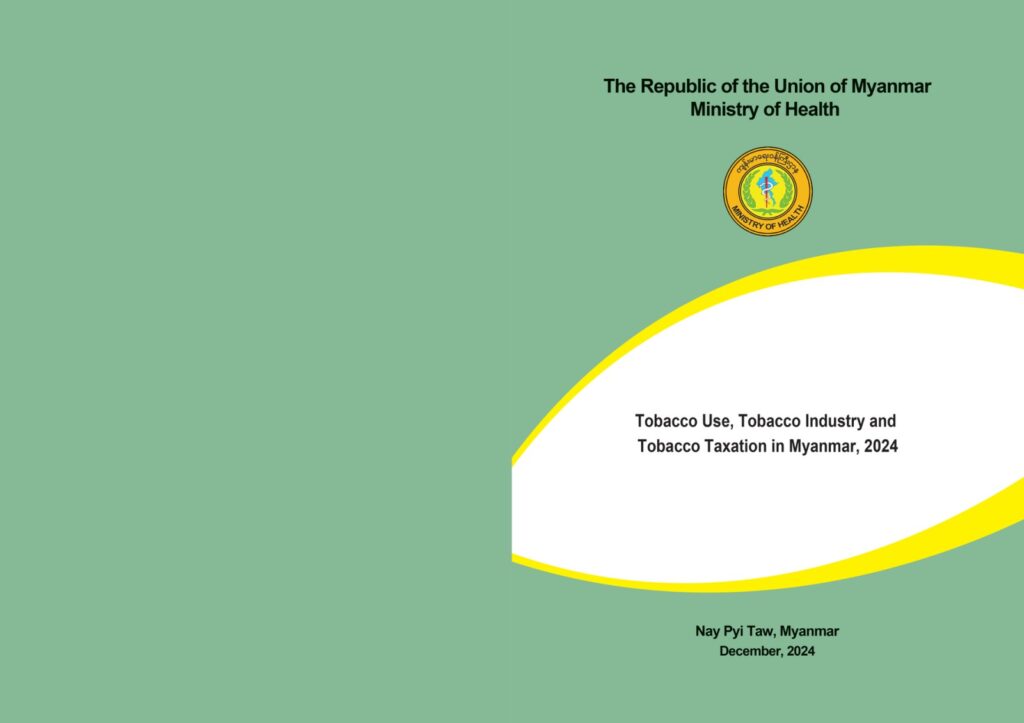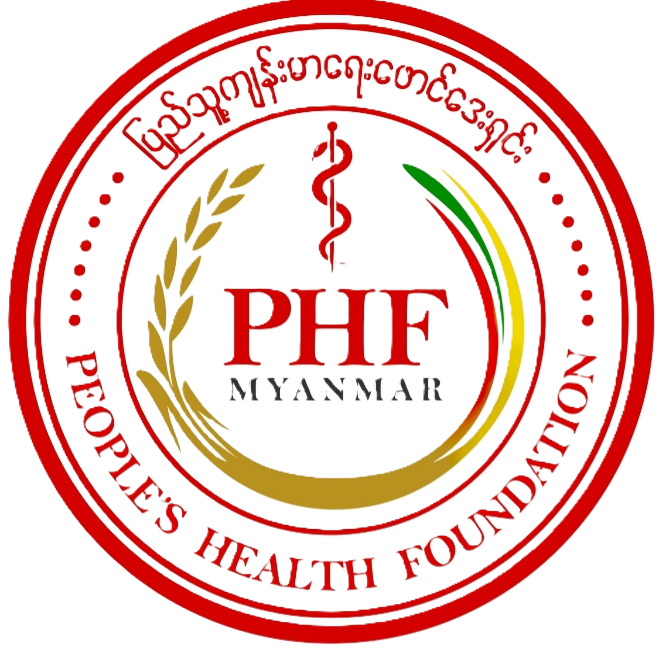May 2025: The Ministry of Health in Myanmar has recently published a document on “Tobacco Use, Tobacco Industry and Tobacco Taxation in Myanmar, 2024”. Present paper provides background information on how Myanmar is trying to implement the guidelines on WHO FCTC Article 6 and highlights a brief update on the current situation of tobacco use, tobacco industry, and tobacco taxation in Myanmar as of December 2024.
Article 6 of the WHO FCTC has stipulated that without prejudice to the sovereign right of the Parties to determine and establish their taxation policies, each Party should take account of its national health objectives concerning tobacco control and adopt or maintain, as appropriate, measures which may include: (a) implementing tax policies and, where appropriate, price policies, on tobacco products so as to contribute to the health objectives aimed at reducing tobacco consumption; and (b) prohibiting or restricting, as appropriate, sales to and/or importations by international travellers of tax- and duty-free tobacco products. Raising tobacco tax is a simple and effective tobacco control measure. In addition to reducing cigarette consumption, tobacco tax typically generates higher tax revenue. A certain proportion of this revenue could be dedicated to use for implementing and enforcing tobacco control policies, and for funding related public health and social programmes. Several studies on the use of tobacco and its products in Myanmar in the last 25 years highlighted the need for addressing tobacco use issues seriously.
Existing national tobacco control legislation, which covers mainly demand reduction, needs to be upgraded to become comprehensive legislation in accordance with the international health treaty – WHO FCTC, and its guidelines, and also in harmony with other ASEAN countries. Consistent favourable economic growth in Myanmar in the last few decades provides an opportunity for strong public support to allocating more financial resources to health sector, including health promotion activities. It gives good ground to reorient and increase quality of life through cost-effective interventions on primary prevention of risk factors, notably tobacco, alcohol, unhealthy diet, obesity and sedentary life styles.
Appropriate price and tax measures are the way forward to raising prices of tobacco products since it is the most effective way to reduce consumption. Price and tax measures should aim at increasing prices across the board for all tobacco products, both local and imported, in order to prevent substitution. Myanmar’s policy on raising taxation of tobacco and tobacco products need to be reviewed in the context of taxation methodology, taxation rates, tax administration, sharing revenue at the Union and Region levels, and sharing collected tax resources for health and other social development.


